While the Ukrainian crisis gets really hot fast, the war in Syria remains hot though the carnage goes on largely unnoticed by Western media.
There are many similarities between the two conflicts, like the via NGO’s and CIA-agents carefully prepared and managed “popular uprising,” the Orwellian media campaign, the exploitation of social and cultural tensions, and the use of fanaticized idle young men.
Right now as these words are written neo-nazis from around the world are packing for a trip to the Ukraine just like Muslim radicals were packing for Syria.
Another similarity is the geopolitical connotation and the integration of the two conflicts in the great plan, which underlies Western policies since the end of WW II. This plan has been discussed here already several times, here the essence in a few words:
The USA plus NATO needs to destroy independent, nationalist, and non-aligned governments, to convert them into imperial satellites by whatever means are effective. This is an inherent function of warrior societies, which are programmed to exploit resources ruthlessly and unsustainably, making it necessary to acquire new territory when the old resources are exhausted. (The US policy of extracting shale gas by franking and using the overproduction to put pressure on Russia and Iran is just a variation and not a disprove of the general rule)
Both conflicts are likely to drag on for a long time.
One significant difference though is, that religion is not involved in the Ukraine, meaning: Less suicide bombings and less summarily executions of villagers with the wrong religion.
The human toll in Syria is unimaginable high, 150,000 Syrians have died, 2.6 million have fled the country, 6.6 million are internally displaced. 9.3 million Syrians are in need of humanitarian assistance, 5.5 million Children are affected.
There is a lost generation of children who grow up in a war zone, experiencing bloody fighting, suicide bombings, massacres, senseless destruction, savagery, crime. Children see their parents or siblings laying dead in a pool of blood, children watch their mothers being raped, their fathers being tortured to death.
One should not use too often the words egregious, outrageous, nefarious, heinous. One should not over and over again condemn the sickening and nearly inconceivable hypocrisy, falsehood, doublespeak, bigotry, glibness, pretense. One should not castigate, damn, curse the monstrous war criminals in the top echelons of power (Oval Office, Nr. 10 Downing Street, Élysée Palace, etc), the psychopathic mass murderers around them, and the legions of minions serving them all fawningly and ingratiatingly.
It doesn’t help to curse and condemn, to be outraged and sickened. One could as well curse the slugs and caterpillars devastating the vegetable beds in the garden or the fungi infecting fruit trees and decimating harvests all around the globe.
It doesn’t help to curse and condemn, it helps though to be aware of what one can expect from these individuals.
Compassion, kindness, graciousness, generosity, moderation, fairness are definitely not on their agenda.
The undeclared war continues
Western journalists were elated when they after a long, long period of bad news (meaning military gains of the Syrian government) were able to report regime change progress after Al-Qaedas Jabhat al-Nura invaded the northern city of Kassab in Latakia province with the help of Turkey and the USA. Turkey provided transportation and logistical support, it also established a de facto no-fly zone along the border by shooting down a Syrian Mig-23 near the Kassab area.
The USA made the surprise attack on Kassab possible by airlifting about 1,000 islamic fighters from their training camps in the al-Rusaifa region of Jordan to Turkey. Only the USA with their gigantic Boing C-17 Globemaster III and Lockheed C-5 Galaxy planes can do that.
The air bridge between Marka airport in Amman and Antakya airport in the Iskenderun province of Turkey was the alternative to a long discussed and promised southern battlefront from the Jordanian territory.
Kassab is a predominantly Christian town and the islamic fighters were keen to cleanse the place from the remaining Christians who had not yet fled under the pretext of evacuating the vulnerable population out of the fighting area. The churches were initially left intact, only the crosses were removed.
There are new reports though that after the offensive has stalled and the attackers have suffered heavy losses the fighters direct their ire and fury increasingly against the churches and Christian cemeteries.
After the Kassab offensive is seemingly faltering Turkey tries to co-ordinating a new assault against Syria together with USA, France, and Qatar. According to Fars News Agency, intelligence sources have asserted that American and French officials travelled between Ankara and Doha, the capital of Qatar, to co-ordinate a new plan.
This is a regional war
From the onset of the crisis US and UK intelligence services moved fighters and weapons into Syria via Turkey (the so-called “ratlines”). These activities were fully vetted and approved by both the Oval Office and Nr. 10 Downing Street. The covert operations have become more and more overt and it is absolutely clear now, that this is not a rebellion, a public uprising, or a civil war, but an undeclared regional war waged by an alliance of Turkey, Jordan, Saudi Arabia (plus Qatar, Kuwait, the UAE), Israel, Iraq’s Sunni, and the USA (plus UK and France) against Syria, Lebanon’s Hezbollah, Iran, Iraq’s Shia, and Russia.
One could also view it as a test run for WW III.
Turkey has kept an open-border policy throughout Syria’s three-year civil war and has vowed to maintain it, providing a lifeline to rebels by allowing supplies in and wounded fighters out. Yet the war efforts come at a price: Car bombs in the Turkish town of Reyhanli killed dozens almost a year ago and there has been more violence since then, killing until now some 80 Turkish citizens.
Turkey’s handling of the Syrian war was said to be the main reason that led to the ruling AK Party’s loss of Hatay province in March’s local elections. The costs the crisis has imposed on the economy in border areas and fears about Islamist fighters have disturbed and alarmed local people.
The price tag is growing for the other Bashar al-Assad-adversaries too.
US, Saudi and Jordanian intelligence have been preparing a southern offensive around Daraa from a joint operations room in Amman. Jabhat al-Nusra is an important force in the plan, acting in coordination with the joint operations room.
But King Abdullah II is afraid of a southern offensive launched from Jordanian territory. He doesn’t believe anymore that Assad is bound to lose and worries about an estimated 2,000 Jordanian jihadis returning to Jordan. The possible faltering of a southern offensive in Syria, with jihadis flowing back into Jordan, could be the end of the Hashemite Kingdom.
There is already strong public discontent about corruption, growing unemployment and poverty, and obsequiousness to as well as collusion with Israel. The city of Maan, located on the border with Saudi Arabia, is in open revolt and the local headquarters of security and military intelligence have been set ablaze.
Jordanian intelligence is still facilitating the transport of injured people, ammunition, and other supplies through unofficial corridors, but on April 16 Jordan’s air force destroyed a convoy of vehicles entering Jordan from Syria and the Jordanians opposed a rebel offensive at Daraa timed to coincide with an offensive in Aleppo.
Israel until now has not seen negative repercussion from the participation in the anti-Syria alliance. The IDF recently established a center to receive the injured in the Samakh plain on the banks of the Sea of Galilee in order to patch them up or send them to Israeli hospitals.
The seven-kilometer buffer zone on Golan has allowed armed opposition groups freedom of movement, made it possible to bring in fighters from Jordan, and strengthened the supply lines extending over a large part of the 80-kilometer cease-fire line.
In addition to logistical support and medical care for rebel fighters the IDF has installed a new missile system (named Mitar) in Golan to prevent Syrian airstrikes against Jihadist groups. The system includes also long range missiles.
In Iraq the Shia-dominated government fights for its life against a Sunni insurgency which is well entrenched on both sides of the Iraqi-Syrian border. Iraqi army helicopters hit a jihadist convoy in eastern Syria on April 27, destroying eight tanker trucks in Wadi Suwab inside Syrian territory as they were trying to enter Iraqi territory to provide ISIL (Islamic State of Iraq and the Levant) with fuel.
Fighters from ISIL and other militants control the city of Fallujah in Anbar province, just a short drive from Baghdad, and security officials have voiced worry that the group is seeking to encroach on the capital as well.
Illustrating those concerns, ISIL last week set off twin bombings against a Shiite political rally, killing 36 people.
Disturbing developments
Western journalists point out, that the rebels are still gaining ground, and report attacks by jihadis like the massive tunnel bomb, which blow up an army checkpoint in Idlib and killed 30 soldiers (an action that could pave the way to Wadi al Dhaif, one of the regime’s largest military bases in the north), and another tunnel bomb which destroyed the ancient Carlton Hotel in Aleppo and a nearby old stone fortress.
Regime-controlled areas in Aleppo, Idlib, and Daraa are reportedly under pressure and villages in the Daraa countryside (Kharbat Fadi, Ankhel, Tal al-Jabiya) and in Quneitra province near Golan (Tal Ahmar) have been conquered by rebels.
The fall of western and eastern Tel al-Ahmar, just five kilometers from the separation of forces line in the Golan Heights, is significant, because the Tel al-Ahmar hill (red hill) overlooks the Quneitra countryside, connects the south Quneitra countryside with the western Daraa countryside, and opens up the southern front to forces advancing from Jordan across the Golan buffer zone.
Damascus is hit every now and then by mortars, launched from Eastern Ghouta. These mortar attacks have no military purpose and just terrorize the population, because they are very imprecise and cause most times only damage to buildings and civilian death.
Syrian and Lebanese media tell a different story, writing about army advances in Homs and Latakia, and about mop-up operations in Eastern Ghouta, Daraa, and Aleppo.
In Aleppo the Syrian forces seized control of the northeastern entrance of the city and are about 1.5 kilometers from the besieged Aleppo Central Prison. Rebels are more and more confined to pockets in the east of the city. The in Western media cheered offensive of the jihadis under leadership of experienced veterans from the Caucasus has fizzled out and the army was able to thwart successive attack waves on all fronts.
The Syrian army has proceeded to consolidate its control over al-Ramouseh and secure its supply lines through Khanasser. This will allow to access the heart of the industrial city, recover the mills area, and advance toward the neighborhood of al-Sheikh Saeed. Shelling by the rebels has killed more than 60 people and injured 100, but this has no military relevance, it is just plain terror.
Homs has been evacuated by 1,700 Islamic fighters under a deal which in practice amounts to a capitulation, and there are only a few holdouts left in the neighborhood of al-Wair.
In the Kurdish areas of northern Syria fighters of the YPG have driven out ISIL from the Kobane countryside.
The “battle for Kassab” has definitely witnessed a military shift that may have major implications on the ground in the Latakia countryside and on the border with Turkey. It was a stalemate for several weeks but the Syrian army was able, after hit-and-run battles, to solidify the battle lines within an area of 20 square kilometers and acquire a direct line of fire less than five kilometers from the border. The army regained control of the strategic Observatory 45 and prevented a jihadist push to al-Badrosia. The army neutralized the Tshalma point and thwarted an attack toward the town of Qustul Maaf.
In Samra, the last town on the border with Turkish troops, there was a surprise sea landing of Syrian troops, made possible by the cover of the Russian fleet. Samra was quickly captured and the soldiers are moving towards Kassab.
War strategies
Most of Syria is desert, and these are the areas where the Muslim rebels reign. The rebel controlled areas have been mostly emptied of their population, which now lives in refugee camps in Turkey and Jordan. The infrastructure is destroyed, there is no economic activity except scavenging, looting, and kidnapping for ransom.
The Syrian army is in no hurry to gain control of these devastated lands, because the situation there is a demonstration how Syria under jihadist rule would look like and a cogently and persuasive argument to support the government.
The army has until now also spared ISIL controlled areas in the east and north from a major offensive, first, because they are of no strategic and economic importance, second, because the harsh rule of ISIL is a convincing example of despotism and religious terror and a motivation for every sane Syrian to energetically support the fight against the extremists.
Syrian forces have firm control over the vital heartland of the country, stretching from the Golan Heights to Damascus, Homs, and Latakia on the north-west coast.
The Syrian government has handed over the Kurdish areas in the north to the YPG, knowing that the Kurds have nowhere to go and will in the end, though under a generous autonomy statute, be obliged to remain under the fold of the Syrian state.
Until recently, stalemate or slow mutually assured destruction had been a likely outcome of the war, but meticulous co-ordination between regime forces and their allies (Iran, Hezbollah, Russia, large Iraqi Shia militias, and volunteer militias from around the Arab world) has changed the face of the battlefield.
By contrast, opposition groups are still fighting as separate entities and their goals and affiliations vastly differ. There are “joint operation rooms” In Amman, Jordan and in Turkey, but the infighting between jihadis, different intentions of the fighters as well as their paymasters, and the lack of discipline (some militias are rather organized crime gangs than military units) make it different to coordinate large military operations.
An anonymous Western intelligence official said: “The support the regime gets is effective and strategic and has been deployed under a single plan, with a single leadership …. Support for the rebels is anything but efficient or strategic. It pursues their backers’ own political goals.”
Infighting between the mad dogs
Fighting between opposing rebel groups has killed more than 3,000 people since the beginning of the year.
ISIL has taken over much of Sunni Iraq. It levies taxes in Mosul and Tikrit and has substantial control in Fallujah and along the Euphrates valley. It has captured the Fallujah dam on the Euphrates and can flood or deny water to areas further south. At Baiji on the Tigris, north of Baghdad, it has blown up an oil pipeline, polluting the river which had been used (after treatment) to supply drinking water to Baghdad.
In Syria ISIL has been taking over areas little by little and it controls now towns and villages in the northern countryside of Deir ez-Zor. The group has tightened its grip on the triangle of al-Sour / al-Bousaira / Deir Ez-Zor and has moved closer to the city al-Shahil, which is considered the main stronghold of Jabhat al-Nusra. Jabhat al-Nusra reacted by eliminating anyone suspected of links to ISIL, resulting in clashes in al-Zir, (which is close to al-Shahil) after the inhabitants refused to comply with the sudden crackdown.
Al-Qaeda leader Ayman al Zawahiri released a new message recently in which he was commanding ISIL to leave Syria and go back to Iraq, where the group was founded. Addressing ISIL leader Abu Bakr al Baghdadi directly, Zawahiri sayd: “Listen to and obey your emir once again…Come back to what your sheikhs, emirs, and those who preceded you on the path and immigration of jihad have worked hard for.”
His call will not be heeded.
Nearly 200 jihadis from both sides have died in renewed fighting in Deir Ez-Zor and 60,000 people in the area have fled the contested villages of Abreeha, Bseera, and Sabha.
Recently the Islamic Taliban movement has decided to fight ISIL. The first clash between the two sides happened in al-Busaira, resulting in significant casualties.
ISIL has executed four FSA fighters.
Jabhat al-Nusra kidnapped Colonel Ahmed Nehmeh, chief of the Deraa Military Council, Ahmad al Masalama, leader of the al-Fursan First Regiment, and several other FSA commanders. Two months ago Abu Fuad Al Husseini, commander of Maghaweer Houran brigade and a friend of Nehmeh, was also captured by al-Nusra.
The Jabhat al-Nusra emir in the city of Bosra Al Sham, Ali al-Naimi, was killed by an IED (improvised explosive device) while traveling with his car. The Jabhat al-Nusra emir Abu Hassan al-Kuwaiti has reportedly fled to Turkey.
More money for the mad dogs
Conceding defeat and backing down is not in the DNA of Western leaders and strategists. If things are not going as planned, the most likely reaction is to ramp up the war efforts and pour more money onto the proxies.
British Foreign Secretary William Hague announced a one-million-pound aid package, including communications equipment, vehicles, generators, and medical kits.
“I am now lifting the hold on those plans to deliver equipment to the Supreme Military Council of the Free Syrian Army in Syria” Hague said in a written statement to the UK parliament.
Rebels report a massive inflow of arms and the existence of a pilot program under which Saudi Arabia supplied them with 20 US-made BGM-71 TOW (Tube-launched, Optically tracked, Wire-guided) anti-tank missiles, with the promise of more if they were used effectively.
Ahmad Jarba of the SOC (Syrian Opposition Coalition), which is a both militarily and politically completely irrelevant creation of the West, absolving a week long visit to the USA after consultations in Riyadh, was giving the Obama administration the cue for granting the Washington offices of the SOC “foreign mission status,” and releasing another 27 million US$ to rebel forces, bringing the (official) US spending to 287 million US$ since 2011.
The new aid package includes:
• $15 million in US Agency for International Development funding for “transition assistance” to help build “inclusive and accountable governance structures.”
• $4 million in grants to help run government services in rebel-held areas.
• $3.5 million to train and equip “independent Syrian media partners.”
• $2 million to support local and provincial councils in opposition-held areas.
• $1.5 million in training to help Syrians “counter sectarian violence and bolster reconciliation.”
• $4 million in grants to help run government services in rebel-held areas.
• $3.5 million to train and equip “independent Syrian media partners.”
• $2 million to support local and provincial councils in opposition-held areas.
• $1.5 million in training to help Syrians “counter sectarian violence and bolster reconciliation.”
One can be sure that at least the same amount of money is channeled via “off the book” funds.
The (so called) non-lethal support and military deliveries by Saudi Arabia are said to be only given to (so called) moderate rebels who are fighting both regime forces and ISIL. Al-Qaeda’s Jabhat al-Nusra, a key actor on the southern front, is not mentioned.
The al-Watan newspaper reports that Jabhat al-Nusra has seized the US-made BGM-71 TOWs from Harakat Hazm fighters and uses them already in Aleppo.
Western money spent worthwhile
When the remaining rebels in Homs’ Old City and the al-Waar neighborhood agreed to the evacuation, al-Ansar Brigades, Liwa al-Haq, Harakat Ahrar al-Sham, Jabhat al-Nusra, and Brigade 313, which are opposed to any settlement with the army formed a “joint operations room” to break the siege around Old Homs, and Jabhat al-Nusra carried out two bombings in the Abbasid area.
Three weeks ago the group took responsibility for another two suicide attacks in the al-Nuzha and Akrama neighborhoods. These bombings claimed more than a hundred lives, including many women and children, yet Western media didn’t bother to even mention them.
Jabhat al-Nusra has promised more suicide bombings and the evacuating rebels in Homs set fire to buildings as they left — a plume of smoke is now hanging over the Old City .
Suicide attacks also recently struck the east of al-Houla in the villages of al-Humeira, Jadrin, and al-Muwalatain, leaving 30 dead and 50 wounded. In the Hama countryside, 23 people, including 11 children, were killed and more than 50 were injured in two bombings in Jabrin and al-Humairi.
ISIL claims, that it has already installed the Caliphate in the areas of Syria and Iraq under its rule and that this is the world’s only true Islamic state.
Billboards in ISIL-controlled areas of Syria read: “We are cultivating the tree of the caliphate” and “A Caliphate pleases the Lord more than freedom pleases the West.”
The city of Raqqa, once populated by 220,000 people, is governed by Sharia law, death is meted out for minor infractions, and pictures of the bloody corpses are tweeted out to ISIL followers and admirers across the world. Last week ISIL was executing and publicly crucifying two men in the center of Raqqa.
Residents who have escaped say that hundreds of people have been abducted by ISIL in recent months. No one knows what they are going through, or whether they are even alive still. People are arrested for posting on Facebook and other internet sites, for missing prayers, or not following the strict dress codes.
Sema Nassar, a prominent human rights activist, says ISIL is believed to be holding “more than 1,000 Syrians in Raqa province, though it is impossible to know the exact number.” She also said those suspected of opposing ISIL or violating its puritanical social code often vanish without a trace and that the province is home to many detention facilities, including secret prisons where torture is exceptionally severe.
Christians are forced to pay a special tax, are strictly forbidden to wear or exhibited crosses in any form, and are not allowed to recite prayers in public. Christians are even forbidden to repair or maintain war-damaged churches.
ISIL has closed all educational institutions in Raqqa and other areas under its control.
What blowback?
Saudi Arabia has detained 62 suspected militants in Abha with links to ISIL, who were plotting attacks on government and foreign targets. The group was collecting donations, coordinating the smuggling of individuals and weapons from Yemen, and preparing to resume assassinations and bombings in Saudi Arabia.
This is a curious twist because there is credible evidence that ISIL is in fact a creation of Saudi Arabia and the leadership at least for some time included Prince Abdul Rahman al-Faisal, son of late King Faisal.
The flow of foreign fighters to Syria to join the war against Bashar al-Assad’s government has become the largest in the history of global jihad, and the Syrian battleground is easily outstripping the 1980s Afghan war against the Soviets as a training ground for Islamic militants.
The foreign volunteers are a major source of manpower for the war and they are the most fanatical on the battlefield. They make up the majority of suicide bombers.
It is only a matter of time before jihadis in al-Qaeda affiliated groups now operating in Syria and western Iraq have a violent impact on the world outside these two countries. Western security services are increasingly alarmed about the implications for the safety of their citizens.
The head of an influential Turkish think tank is quoted by the media as saying that “When Turkey starts arresting them [the jihadis], which it will do, we know what will happen. There will be bombs all over Turkey.”
Few volunteers in the 1980s came from the Muslim Diaspora in Europe and North America. Now there are dozens of fighters in Syria who have US-American and European passports and will come home if they survive the war. For the intelligence and security services of the Western allies the specter of dozens of battle-hardened, experienced fanatics returning to their homes full of anger and resentment is a deeply troubling one.
But maybe this “blowback” is just what Western leaders need to justify the elimination of civil rights, unlimited surveillance, and the institution of an authoritarian police state.
And anyway, everything has its price, even plain straightforward regime change.
The persecution of Christians
Sister Raghad, an nun and the former head of the Patriarchate School in Damascus, testified to the Vatican news agency that three Christians in Maaloula were crucified for refusing to convert to Islam or pay jizya (islamic tax).
“They were killed in atrocious and violent ways that cannot be described. If you want examples, they crucified two youths in Ma‘loula for refusing to proclaim Islam’s credo, saying to them: ‘Perhaps you want to die like your teacher [Christ] whom you believe in? You have two choices: either proclaim the shehada or else be crucified. One of them was crucified before his father, whom they also killed.’”
The three Christians were declared martyrs by the Syrian Greek-Catholic Church, or as Patriarch Gregorios III explained to Pope Francis in a meeting: “Holy Father, they are true martyrs. Ordered to give up their faith, they proudly refused. Three others however gave in and were forced to declare themselves Muslim, but later returned to the faith of their ancestors.”
Pope Francis recently said, “I wept when I saw reports saying that Christians were being crucified in non-Christian countries.”
Beside the crucifixions there were other barbaric acts, including beheadings, rape, and infanticide during the rebel occupation of Maaloula, but like all other rebel atrocities these acts were dutifully ignored by Western media.
After the army regained control of the historic Christian city of Maaloula, a government commission from the DGAM (Directorate General of Antiquities and Museums) inspected the religious sites and listed the destruction inflicted by the jihadis:
Both complicit traders and fighters themselves have looted, vandalized, and destroyed invaluable historical places, monasteries, churches, cemeteries, shrines, and tombs. They destroyed altars, painted over traditional icons and frescos, removed and burned crosses, dug for treasures under altars and in tombs.
In the Church of St. Leontius the marble tabernacle has been destroyed and all holy items have been stolen, including the ancient church bell which was one of the most beautiful-sounding church bells after the Church of the Resurrection bell in Jerusalem. The crosses have been removed from above the domes of the church and the wooden seats set on fire. The graves located inside the church have been dug up and the remains of priests been thrown outside.
All other churches (St. Barbara, SS. Cosmas and Damian) and monasteries (St. Takla, SS. Sergius and Bacchus) suffered similar destruction.
One can only wonder in what condition the churches and cemeteries of Kassab will be, when the Syrian army regains control of the town.
Why is it, that the USA, a self declared “Christian nation,” resolutely and vigorously supports the prosecution and extermination of Syria’s Christians? Could it be because Syria’s christians are Greek orthodox and therefore despised as apostates or heretics by the evangelical Christians of Anglo America, just as Shia are despised by Sunni?
Or is it the “brotherhood of minds” between the savages of Wall Street (plus the MIC) with the global jihadis which urges this support? They are after all on the same wavelength, both drawing solace from sowing terror and destruction, just working in different areas and achieving their aim with different methods. Birds of the same feather….
This question is surely worth further consideration and discussion, but judging by their deeds, it appears that Western Christian leaders always seemed to have a soft spot in their heart for the Salafis, Takfiris, Jihadis, and other sociopathic criminals eager so commit mass murder in the name of honor, pride, change, independence, freedom, democracy, and whatever catchwords were just trendy and swank at the time.
What conclusions can be drawn from such an analysis? It surely doesn’t help, as said before, to be outraged and sickened, embittered, and disillusioned, it helps though (maybe) to make the appropriate conclusions, promote and propagate the alternative view, and join the growing movement of dissent and nonconformity.
Update:
Al-Qaedas Jabhat al-Nusra has reportedly cut water supplies into both the rebel controlled eastern part and the government-controlled west of Aleppo. People queue in front of wells for collecting water, some people drink unclean water.
Islamic militants last month cut the electricity supply to government-held areas of the city and nearby neighborhoods.
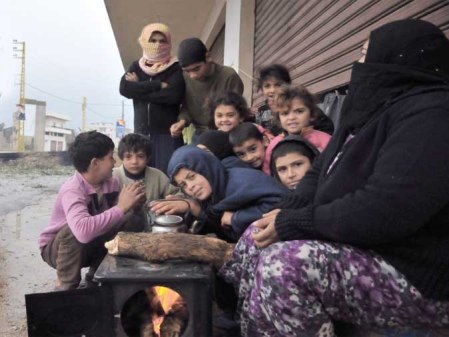
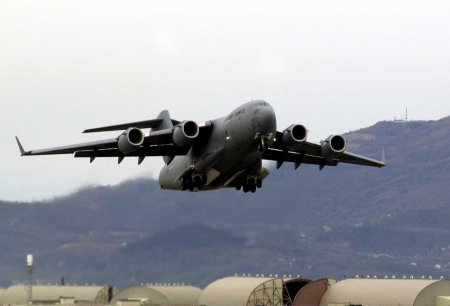
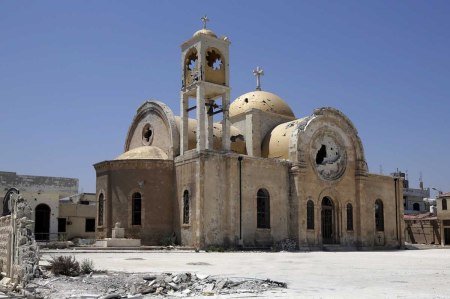
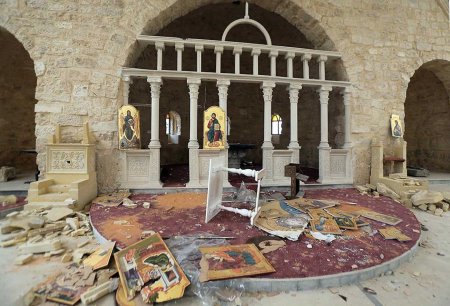
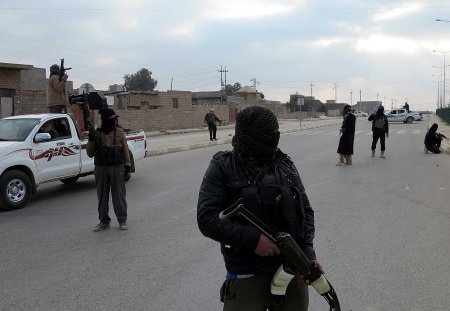


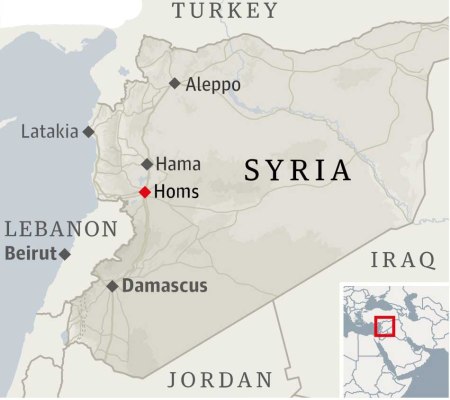
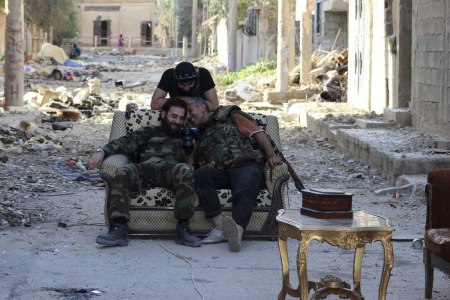
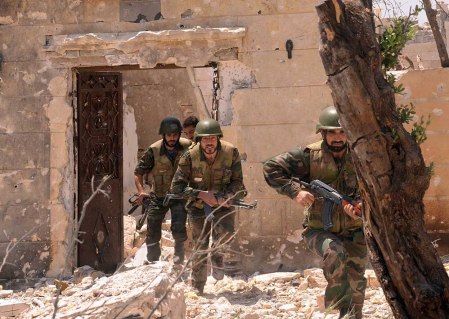

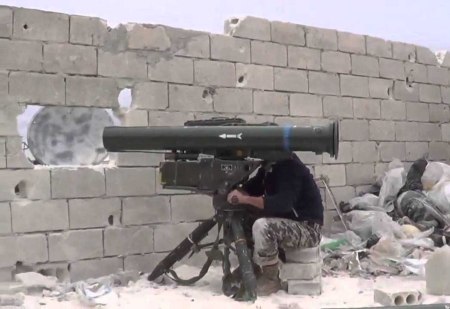

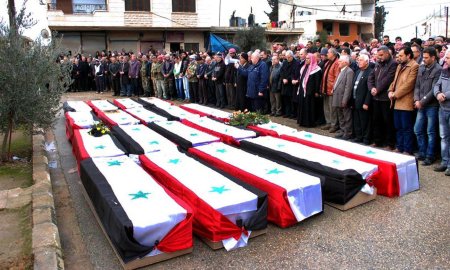
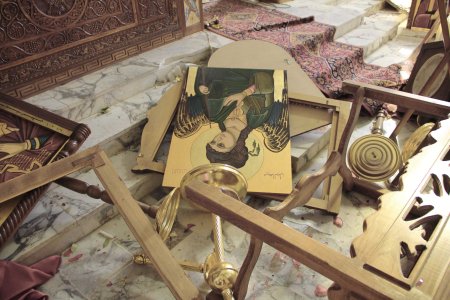
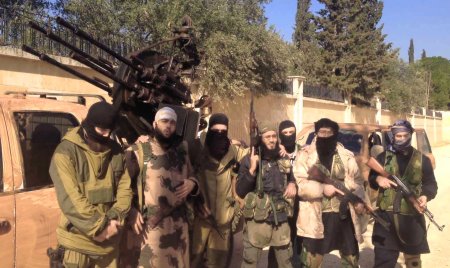
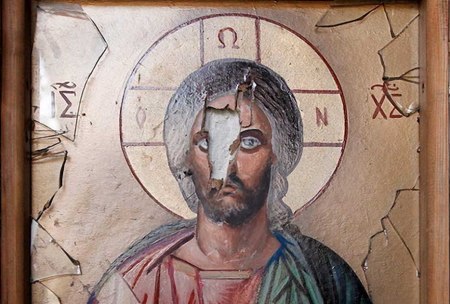
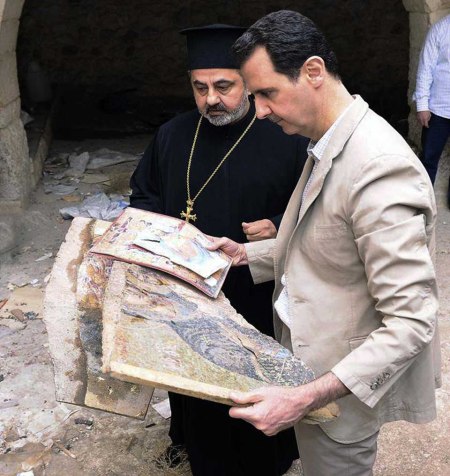
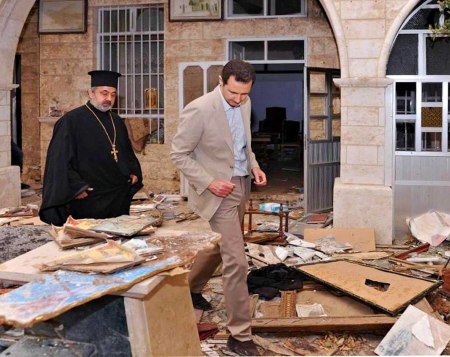
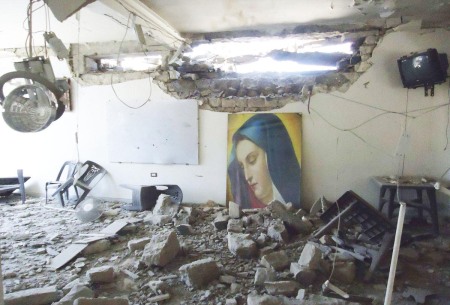
Nice article. New to Addhunters? It’s incredibly easy to become a member of our community, and FREE to list your classified ads to interact with all members. Every day, hundreds of listings get listed for free by our Addhunters members. You can always upgrade your membership and get ahead of the crowd. With Addhunters you’re going to benefit from our international usages!Items listed on Add Hunters include electronics, pets, cars and, vehicles and other categories including land and property. The categories with the highest volume on the site are vehicles and property. For more details please visit our web site www.addhunters.com better homes
AntwortenLöschen